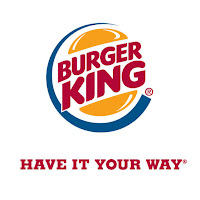The Society of the
Spectacle has made us realize we live in a “made up” world. A show to which we
have been conditioned to think satisfies our desires rather than our needs. We have been so well trained to think those
are genuine desires when in reality that’s what we have been told. The spectacle
is propaganda manipulating the spectator into thinking that “the commodities,”
are a need. The spectacle plays with
psychology and emotions creating in us the spectators, sentiments of happiness
and positioning. As a consequence, we
live in a “war,” as Debord writes, “The spectacle is a permanent opium
war which aims to make people identify goods with commodities and satisfaction
with survival that increases according to its own laws. But if consumable
survival is something which must always increase, this is because it continues
to contain privation” (44). It has become part of our instinct to access
the latest commodities in order to prevail in such a competitive world.
An example of the spectacle is fast food chain’s promotion.
To add, Burgers Kings’ slogan is “HAVE IT YOUR WAY.” This spectacle makes us
think we are getting the commodities our way. It pretends to make us think we
have control over the commodity, creating in us a sense of power. This is a vintage Burger King commercial from 1974:
Debord
says, “With the achievement of
a purely economic abundance, the concentrated result of social labor becomes
visible, subjecting all reality to an appearance that is in effect that labor's
product. Capital is no longer the invisible center determining the mode of
production. As it accumulates, capital spreads out to the periphery, where it
assumes the form of tangible objects. Society in its length and breadth becomes
capital's faithful portrait” (50). What I understood from this, is that big companies
make commodities appear something else and anything that’s real becomes an
illusion as well. Those illusions have
been created base on society’s interaction with the commodities. An example of illusion is IPhone 7. Based on
people’s response to iPhone, the company have created an illusion of an improved
device when in reality not much has been changed. People are purchasing the new
iPhone thinking they are buying a new revolutionary device when in reality they
are buying the result of their responds to the company. When I talk about society’s
responds to the company, I mean the hype
they have given iPhone as revolutionary technology. The company have been put in a pedestal by consumers.
This becomes beneficial for company because now its dealing with positioning in
the market. How well they are positioned, based on the illusion, creates an accessibility
problem for working class spectators. As
Debord writes, “Consciousness
of desire and the desire for consciousness together and indissolubly constitute
that project which in its negative form has as its goal the abolition of
classes and the direct possession by the workers of every aspect of their
activity. The opposite of this project is the society of the spectacle, where
the commodity contemplates itself in a world of its own making” (50). The Spectacle has no desired to end classes
therefore their commodities will always try to keep their value with the
creation of spectacles.


No comments:
Post a Comment